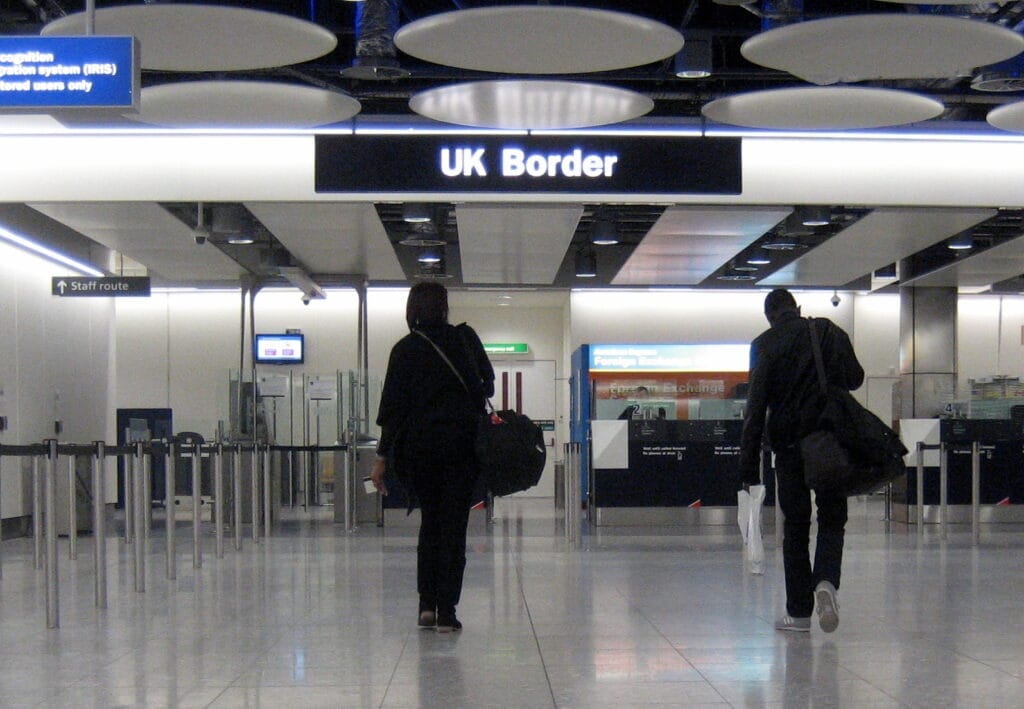Sharp decline in UK work and study visas following rule changes
The number of foreign nationals applying to come to the UK on work and study visas has fallen by over a third in the last 12 months, according to official government statistics.
The decline is due to changes to the Immigration Rules introduced earlier this year by the previous Conservative government aimed at cutting net migration, which reached a record high of 764,000 in 2022.
The latest published figures show the number of migrants applying for Health and Care Worker, Skilled Worker or Student visas fell from around 141,000 in July 2023 to 91,300 last month, down 36 per cent on the same month in 2023.
Health and Care Workers
A particularly sharp decline has been observed in the number of people applying for Health and Care Worker visas, after the rules were tightened to prevent care workers from bringing dependant family members with them to the UK.
There were just 10,800 applications for Health and Care Worker visas between April and July 2024, following the policy changes – an 81% decrease compared to the same 4 months in 2023. Between April and July 2024 there were 22,200 applications for dependents on the Health and Care route – a 71% decrease compared to the same 4 months in 2023.
The Health and Care Worker route was first introduced in August 2020 as part of the UK’s post-Brexit points-based immigration system. In February 2022, care workers and home carers were made eligible for the visa in a bid to fill chronic labour shortages in the adult social care sector.
Following the change, application numbers under the route soared significantly. Between February 2022 and August 2023, monthly applications from main applicants increased from 4,100 to 18,300. Applications for dependants increased in-line with main applicants, peaking at 23,300 in August 2023.
Leaders in the care sector have said some migrant care workers who arrived in the UK during the earlier peak in overseas recruitment are now beginning to return to their home country or seeking work in other countries with “a less hostile environment around immigration”.
To ensure the adult social care sector can continue to access the skills it needs, the government is currently working towards implementing a new Fair Pay Agreement which it says will attract more domestic workers to the sector.
Skilled Workers
In contrast, the number of monthly applications for Skilled Worker visas from main applicants has remained broadly stable between January 2022 and March 2024, at around 6,000 applications per month. Applications increased to 10,100 in April 2024, before reducing again to 6,000 in July 2024.
In total, there were 28,600 applications for Skilled Worker visas between April and July 2024 – a 23% increase compared to the same 4 months in 2023.
Applications for dependants on this route were broadly in-line with main applicants, with 23,400 applications made between April and July 2024, a 26% increase compared to the same 4 months in 2023.
This is despite higher salary requirements being introduced under the Skilled Worker route in April, with the general salary threshold rising to £38,700 per year from the previous £26,200.
Students
In January 2024, new rules were introduced to prevent international students on sponsored study visas from bringing dependant family members with them to the UK. The only exception is for those studying postgraduate research courses or courses with government-funded scholarships.
In January to July 2024, there were 156,800 applications for sponsored study visas by main applicants, 16% lower than in January to July 2023. In the same period there were 13,100 applications from dependants of students, 81% fewer than in 2023.
However, the number of sponsored study visa applications tend to peak between July and September, before the start of the academic year. For this reason, it will be necessary to wait until the Autumn to assess the full impact of any changes this year.
Future decline in visa numbers predicted
The trends shown in the official data suggest that overall immigration numbers are likely to fall significantly in the future.
The University of Oxford’s Migration Observatory has estimated that net migration will continue to drop considerably in the next five years to about 350,000 by 2030, driven in part by more people leaving the UK, declines in the number of overseas students arriving in the UK, and a fall in private sector vacancies.
The Home Office has committed to tackling ongoing skills shortages by training up the domestic workforce and shaping a fair and well-managed immigration system.
However, experts have warned it will take several years to build up an adequate supply of suitably qualified domestic workers, and employers could continue to face skills shortages.
The higher education sector may also face declining revenues due to less international students coming to the UK.
Speak to an immigration expert
If you are an employer seeking advice and support on the UK Immigration Rules and sponsoring migrant workers, Smith Stone Walters can help.
To find out more about our business immigration services or to speak to an advisor, please contact us today.















